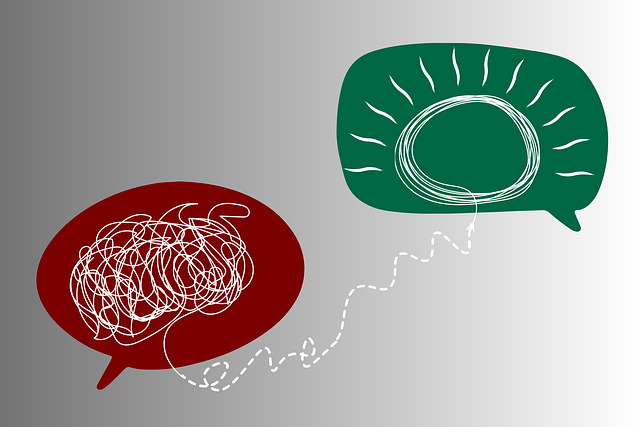In a world where stress significantly impacts health, Colorado Springs offers cutting-edge solutions through Functional Neurological Disorder (FND) therapy. The city's workshops integrate FNDT with mindfulness, cognitive behavioral therapy, and relaxation techniques to empower individuals in managing daily stressors. These holistic practices, facilitated by experienced instructors, foster emotional safety and active participation in a supportive environment. Regular risk assessments ensure safety. Success is measured through pre- and post-workshop surveys, revealing changes in stress levels and well-being. This data informs tailored adjustments for future sessions, enhancing the effectiveness of FND therapy in Colorado Springs.
In today’s fast-paced world, stress has become an all-encompassing challenge. For those in Colorado Springs seeking effective solutions, stress management workshops offer a transformative path. This article delves into the comprehensive approach of integrating Colorado Springs functional neurological disorder therapy (FNDT) techniques with workshop design to mitigate stress and enhance well-being. We explore evidence-based strategies, from understanding stress’s impact to creating supportive environments and measuring success, providing valuable insights for facilitators and participants alike.
- Understanding Stress and its Impact on Well-being
- The Role of Functional Neurological Disorder Therapy (FNDT) in Stress Management
- Designing Effective Workshop Content for Stress Reduction
- Creating a Supportive Environment: Tips for Facilitators
- Measuring Success and Tracking Progress: Assessing Workshop Outcomes
Understanding Stress and its Impact on Well-being

Stress is a ubiquitous part of modern life, but its impact on overall well-being cannot be overlooked. It’s essential to understand that chronic stress isn’t just about feeling overwhelmed; it can lead to significant physical and mental health issues, affecting everything from sleep patterns to immune function. In Colorado Springs, functional neurological disorder therapy has emerged as a valuable approach to addressing these challenges, offering tailored interventions for individuals struggling with stress-related conditions.
For healthcare providers, burnout prevention strategies are crucial. With increasing demands and sometimes challenging patient interactions, it’s easy for professionals to neglect their own mental wellness. Healthcare provider cultural competency training can play a pivotal role in promoting resilience by equipping them with tools to manage stress effectively. This, in turn, not only benefits individual practitioners but also enhances the quality of care they provide to patients facing similar struggles.
The Role of Functional Neurological Disorder Therapy (FNDT) in Stress Management

At our Stress Management Workshops Organization based in Colorado Springs, we integrate innovative approaches like Colorado Springs Functional Neurological Disorder Therapy (FNDT) to offer holistic stress relief solutions. FNDT targets underlying neurological imbalances that contribute to chronic stress and burnout prevention. By focusing on brain function and neural connectivity, this therapy facilitates self-esteem improvement and fosters healthier coping mechanisms.
Our workshops combine FNDT with other evidence-based techniques such as mindfulness meditation, cognitive behavioral therapy, and progressive muscle relaxation. These comprehensive strategies help participants develop personalized tools for managing stress in their daily lives. Through interactive sessions, individuals learn to identify triggers, regulate emotional responses, and cultivate a sense of calm, ultimately enhancing their overall well-being.
Designing Effective Workshop Content for Stress Reduction

Designing an effective stress reduction workshop involves a thoughtful approach that caters to the diverse needs of participants. At our Colorado Springs Functional Neurological Disorder Therapy center, we emphasize the importance of engaging content that goes beyond surface-level techniques. Workshops should incorporate practical strategies for crisis intervention guidance, fostering resilience building and teaching emotional regulation skills. By combining interactive exercises, group discussions, and mindfulness practices, attendees can learn to navigate stressful situations with greater ease.
Our experienced facilitators tailor the curriculum to promote profound and lasting change. We believe in a holistic approach that addresses not just the symptoms of stress but also its underlying causes. Through carefully crafted lessons and personalized support, participants gain valuable tools to manage their mental health effectively, ultimately enhancing their overall well-being.
Creating a Supportive Environment: Tips for Facilitators

Creating a supportive environment is paramount for successful stress management workshops. Facilitators play a crucial role in cultivating an atmosphere that encourages open dialogue, emotional safety, and active participation. This involves ensuring physical comfort with well-lit spaces, comfortable seating, and adequate ventilation. Additionally, facilitators should adopt inclusive language, create ground rules with clear expectations, and foster a non-judgmental environment. Utilizing icebreakers, interactive activities, and varied teaching methods can enhance engagement and make the experience more dynamic.
For instance, incorporating mindfulness exercises or group discussions centered around real-life challenges specific to Colorado Springs functional neurological disorder therapy attendees can build camaraderie. Facilitators should also be attuned to individual needs, allowing for personalized support while maintaining a cohesive learning environment. By focusing on these aspects, workshops can effectively empower participants with stress management techniques tailored to their unique circumstances. This holistic approach not only enhances learning but also contributes to the overall well-being of those seeking mental health education programs design. Moreover, facilitators should consider regular risk assessments for mental health professionals to ensure a safe and supportive setting for all.
Measuring Success and Tracking Progress: Assessing Workshop Outcomes

Measuring success and tracking progress are vital components of any workshop, especially those focused on stress management in Colorado Springs for individuals dealing with functional neurological disorders (FND). Assessing outcomes allows organizers to understand the impact and effectiveness of their programs, ensuring continuous improvement and better support for participants. One effective method is using pre-and post-workshop surveys to gauge changes in attendees’ stress levels, coping mechanisms, and overall well-being. These surveys can highlight improvements in social skills training, a key area of focus for many community outreach program implementations targeting mental illness stigma reduction efforts.
Additionally, qualitative feedback from participants through open-ended questions provides valuable insights into their experiences. This qualitative data can reveal unexpected benefits or challenges, offering a more comprehensive view of the workshop’s success. By combining quantitative and qualitative assessments, organizers gain a deeper understanding of the program’s impact, enabling them to adapt and refine future sessions for maximum effectiveness in supporting individuals with FND in Colorado Springs.
Stress management workshops can be powerful tools for individuals seeking to improve their well-being. By combining insights from understanding stress with evidence-based therapies like Colorado Springs Functional Neurological Disorder Therapy (FNDT), these sessions offer a comprehensive approach to reduction. Careful content design, facilitators’ skill in creating supportive environments, and rigorous measurement of outcomes ensure participants gain practical strategies for navigating life’s challenges. Through ongoing evaluation and adaptation, workshops can be fine-tuned to meet the evolving needs of those looking to reduce stress and enhance their overall resilience.














